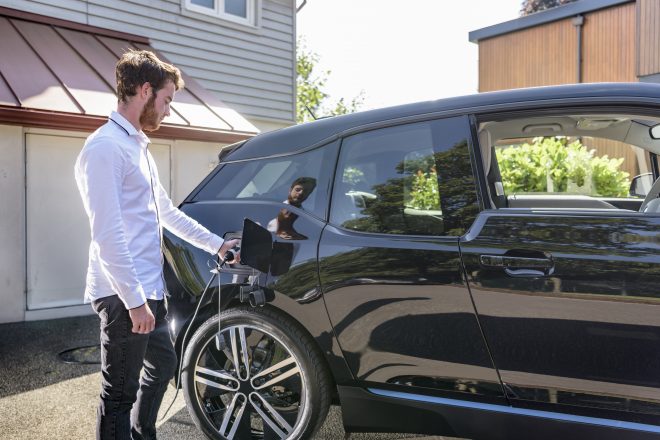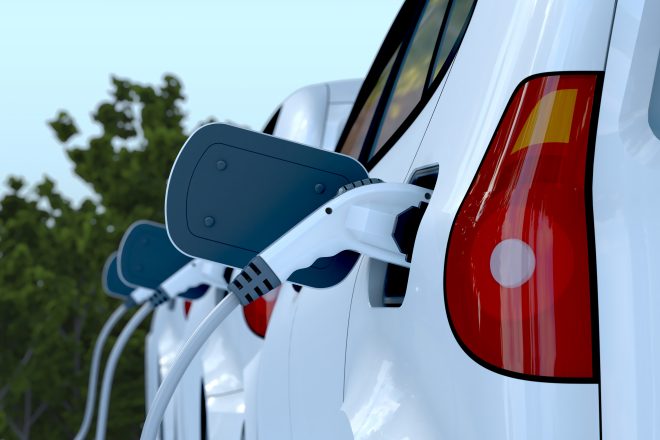How do you choose an electric vehicle?
X minutes reading time
Electric driving is booming. This is good news, as it ensures a growing supply of plug-in hybrid and electric cars. Which also means you have more options. But how do you know which car best suits your wants and needs? This article explains what aspects you should consider to determine which type of car is best for you.

Here’s how to choose the electric car that’s right for you
In need of a new car? Then the first thing you need to consider is the car’s body type. What design appeals to you? How many seats do you need, and how much space do you need in the boot? These are the questions you ask yourself with any new car. Have you figured out what you need? Then check which plug-in hybrid and electric cars meet these requirements. You have already determined the first selection of cars that appeal to you.
Now it comes down to the next 3 points that affect your choice:
1. What is the most appropriate powertrain – BEV, PHEV or HEV?
2. What range do you need?
3. How fast does the car charge?
What is the most appropriate powertrain?
To determine which powertrain is best for you, it is important to consider your driving habits and charging capabilities. To figure this out, answer the following questions:
▪When and how often do you ride, and what distances do you cover in the process?
▪Where are you driving? Do you drive in the city with stop-go traffic jams, or is it long-distance highway driving?
▪How do you want to charge your car? At home or in the office? And are charging facilities already in place, or is installation required? And what are the options?
Every car works differently, and choosing an electric car that fits your lifestyle is important. Will you choose a BEV, a PHEV or an HEV/MHEV?
BEVs are fully electric cars. You need to be able to charge these cars regularly. Whether at home, at the office or on the road. Installing a charging point at home is very convenient. If this is not possible, find out about the number of public charging points nearby.
PHEVs are plug-in hybrid cars. These cars are often ideal for people who want to take a first step into the EV world without fear of having too little range on longer trips. Depending on the model, PHEVs have an average (battery) range of 30-60 kilometres. You can fall back on the car’s petrol engine for longer distances. If you use the car properly, it is possible to save fuel and reduce CO2 emissions. If you travel long distances, then it may not be the right fit for you because you’ll use the petrol part of the engine too often.
HEV/MHEVs are usually advertised as self-charging hybrids and cannot be charged via a charging cable. (M)HEVs are similar to traditional petrol cars but can also run on electricity at low speeds and small distances. We recommend this type of car when there are no public charging facilities nearby.
What range do I need?
The electric car’s range is the next component on which to focus when determining your choice. With the (M)HEV and PHEVs, you can fall back on the petrol engine without worrying about the car’s range. With all-electric cars (BEV), you only have the electric power through a battery. So be sure to study the range of these cars well.
Do you have your eye on an electric car? Then ask the dealer or check the car’s brochure to see what the range is. This way, you can tell in advance whether the car is especially suitable for city use, for example, or whether it is more equipped for long-distance driving.
There are now fully electric cars with a range of more than 500 km. However, it remains important also to consider the external factors that may affect the car’s range. External factors are:
▪ Driving at high speed. This consumes more energy and reduces range. For example, if you choose a car designed for city use and take it onto the highway at high speeds, you will find that its range decreases significantly.
▪Weather conditions. Using air conditioning or heating can reduce range. Just like cold weather. In high winds or stormy weather, the engine has to work harder, consuming more energy. This affects the range.
▪The load on the car. The heavier the load, the more energy is consumed. With proper tire pressure, you make sure the battery is used efficiently.
▪The age of the battery. This can reduce the range by 10-15% after 5 years.
If you research how to drive electric efficiently and do it in practice, you can improve the car’s range by up to about 10%. Consider regenerative braking, for example.
How fast does the car charge?
Another important consideration when choosing your car is the presence of charging facilities and charging time. This is because not all charging stations charge the battery at the same speed.
Charging requires a different approach than refuelling. With a petrol car, you fill up the tank once in a while; with an electric car, it is important to charge when you can. Charge the car when it’s parked in front of your house, when you’re at the office or have an appointment somewhere. This way, you ensure you always leave with a full battery and can cover the most kilometres by car again.
Depending on whether you use a wall box/home charging station or charge the car from an outlet in your home, the car can take about 4-18 hours to charge fully. You can even charge the battery to 80% full in just under 20 minutes at fast-charging stations. Check if the car can handle the charging speed if you want to use fast-charging stations. If this is not the case, charging the car will still take longer.
A long trip or trip abroad requires proper preparation. There is excellent coverage of public charging points in most parts of the Netherlands. In the rest of Europe, charging options can vary quite a bit from country to country. So it’s important to research charging facilities on the road and at your destination in advance. This way, you avoid running into problems when you want to charge. Several apps have been developed to help you figure out where to charge efficiently and quickly. Very convenient.
If you consider the above points when you want to drive electric, you will choose the electric car that suits you best. No surprises, just a car perfectly suited to how you want to use it. Good luck with your EV choice!


